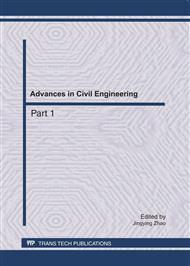p.2009
p.2013
p.2018
p.2023
p.2028
p.2033
p.2037
p.2042
p.2047
Improving Relevance Feedback via Using Support Vector Machines
Abstract:
Traditional relevance feedback technique could help improve retrieval performance. It usually utilize the most frequent terms in the relevant documents to enrich the user’s initial query. We re-examine this method and find that many expansion terms identified in traditional approaches are indeed unrelated to the query and harmful to the retrieval. This paper introduces a Support Vector Machines Based method to improve the retrieval results. Firstly, the classifier is trained on the feedback documents. Then, we can utilize this classifier to classify the rest of the documents and move relevant documents to the front of irrelevant documents. This new approach avoids modifying the initial query, so it’s a new direction for the relevance feedback techniques. Our Experiments on TREC dataset demonstrate that retrieval effectiveness can be improved more than 24.37% when our proposed approach is used.
Info:
Periodical:
Pages:
2028-2032
Citation:
Online since:
May 2011
Authors:
Price:
Сopyright:
© 2011 Trans Tech Publications Ltd. All Rights Reserved
Share:
Citation:


